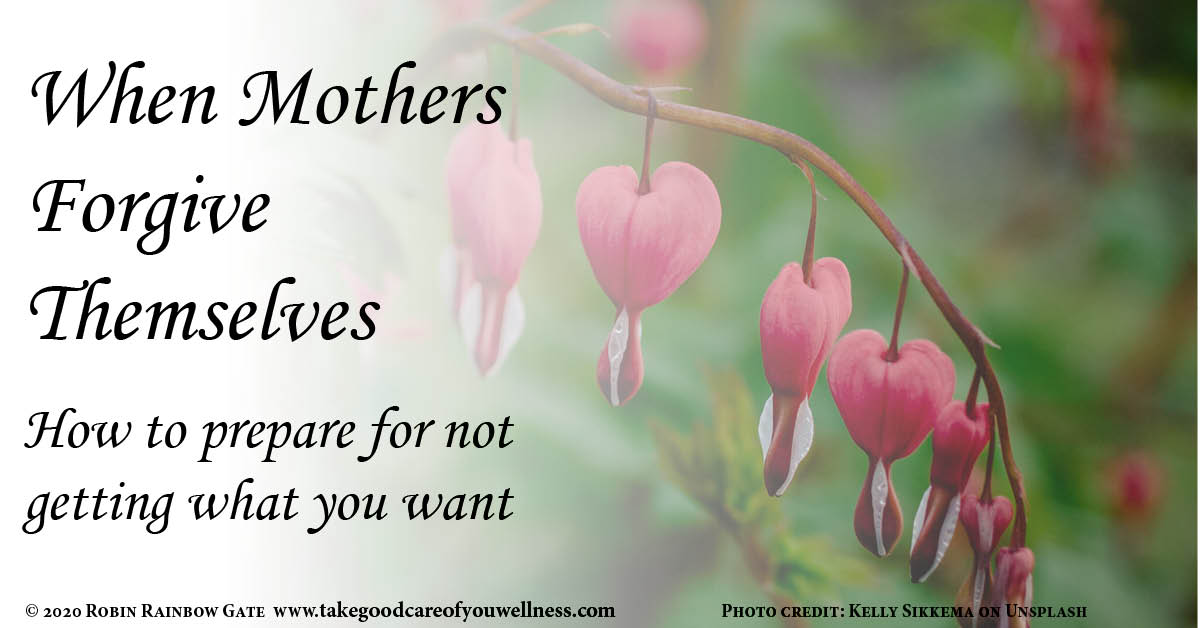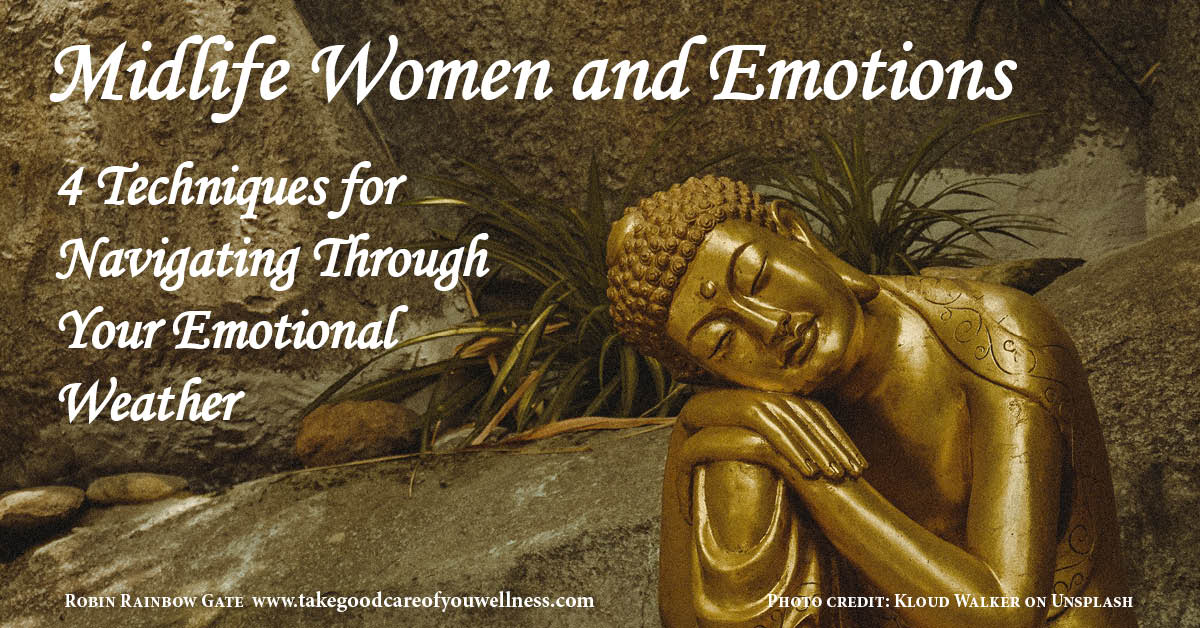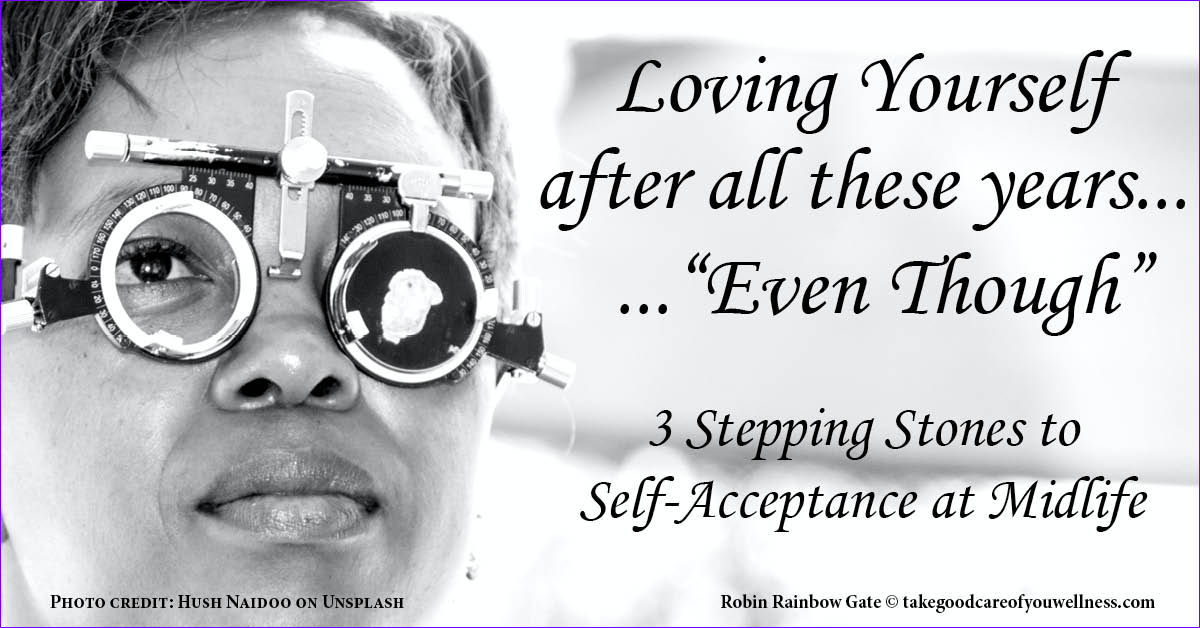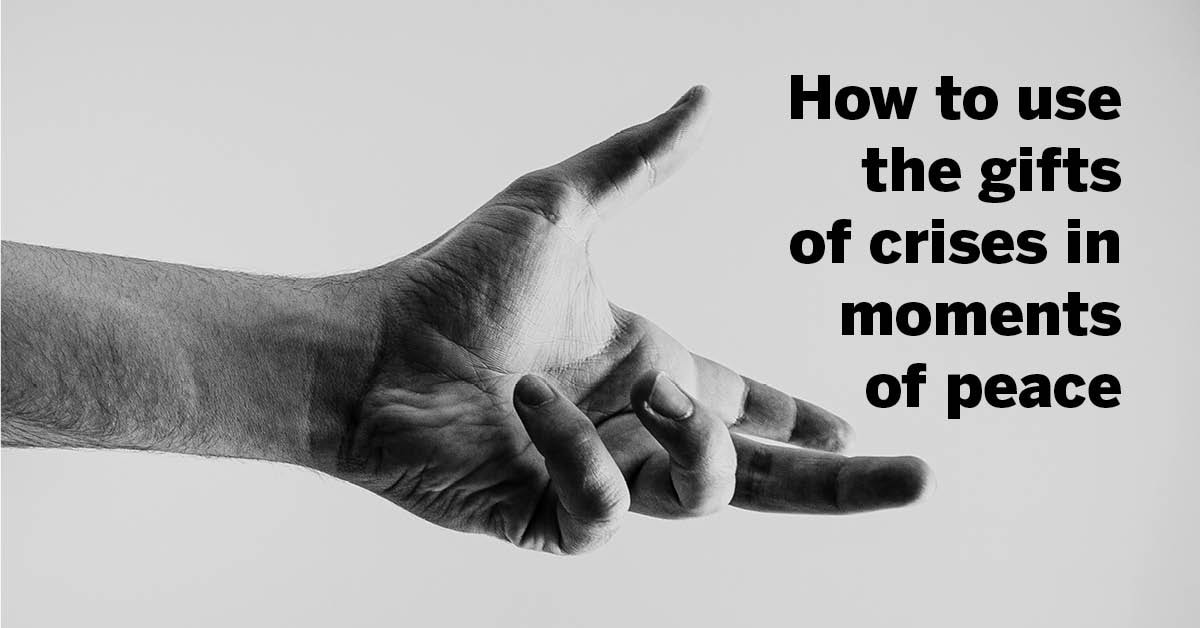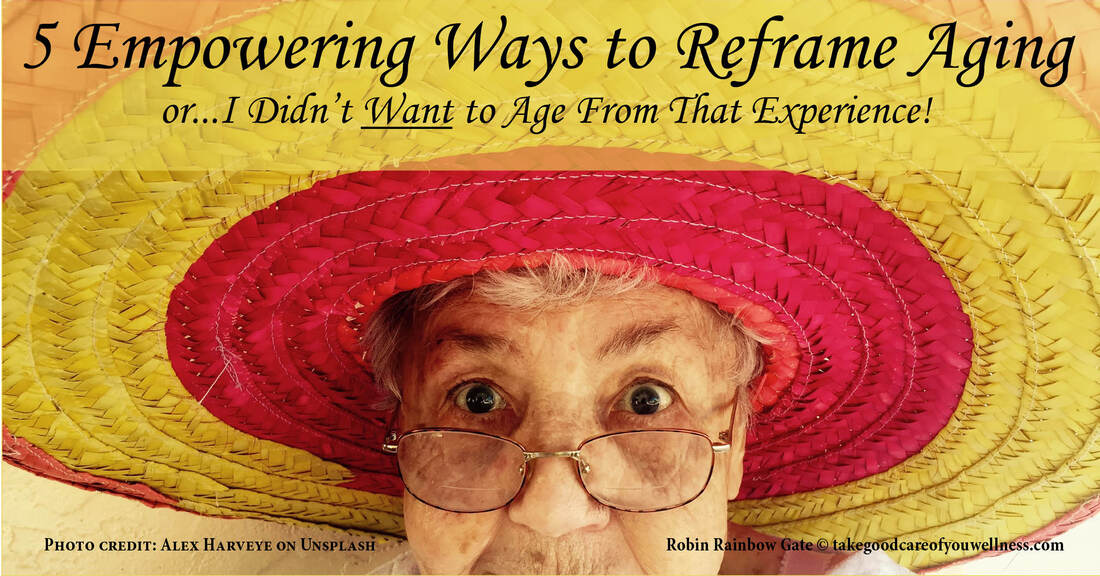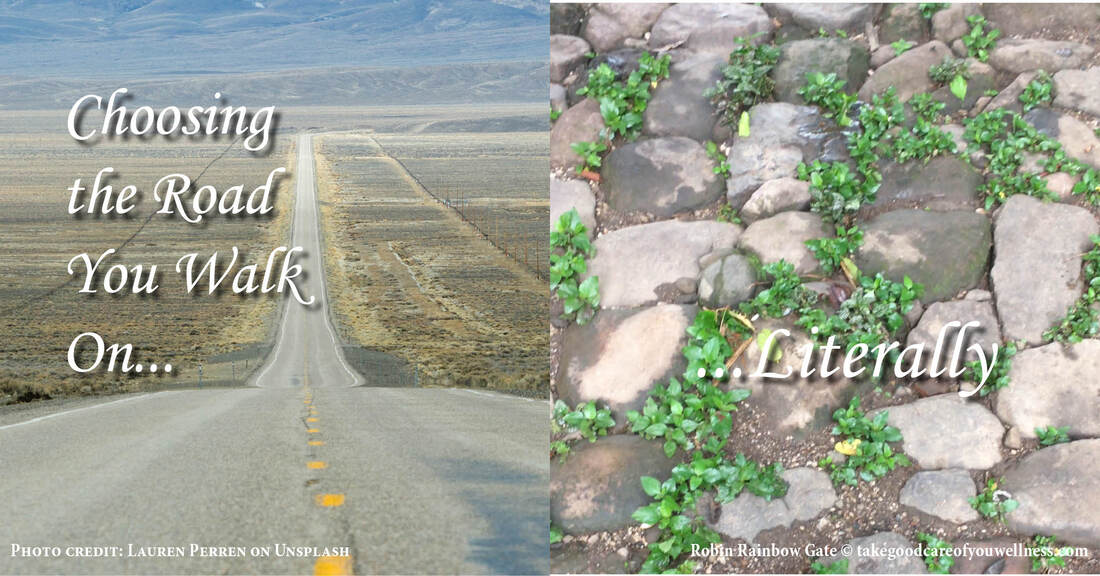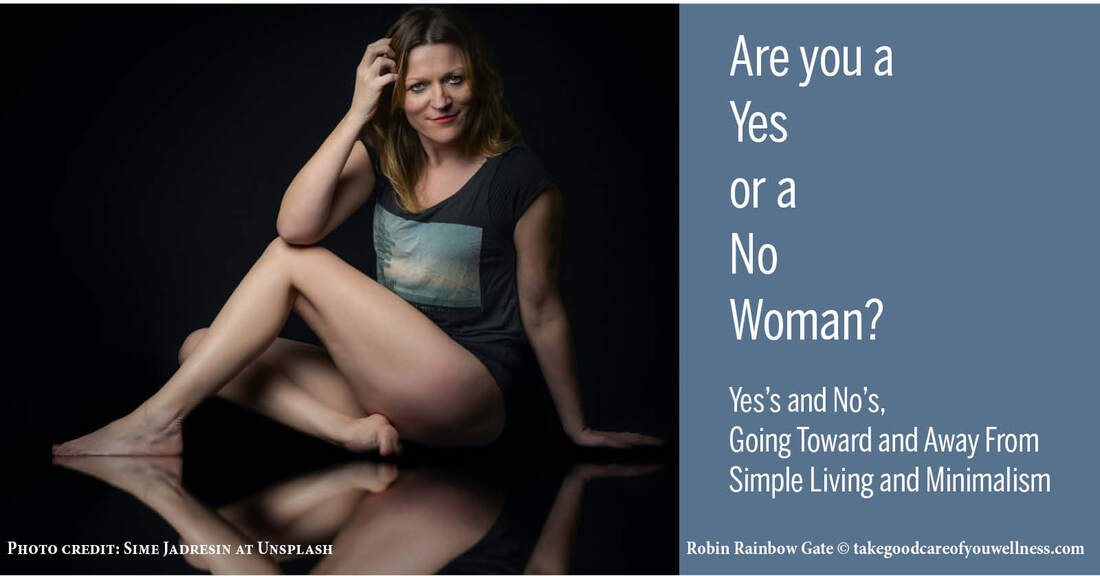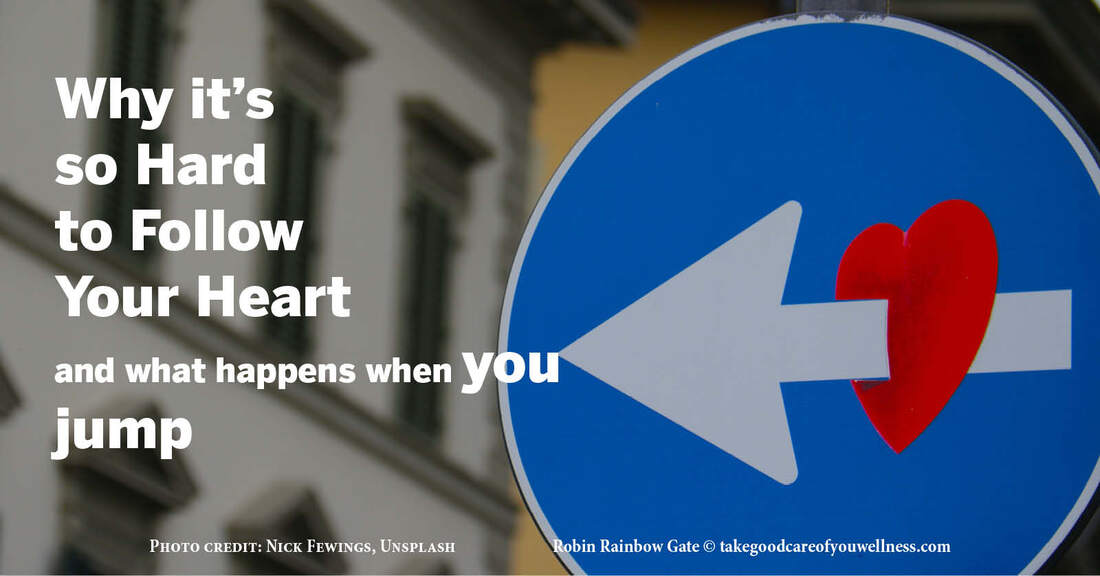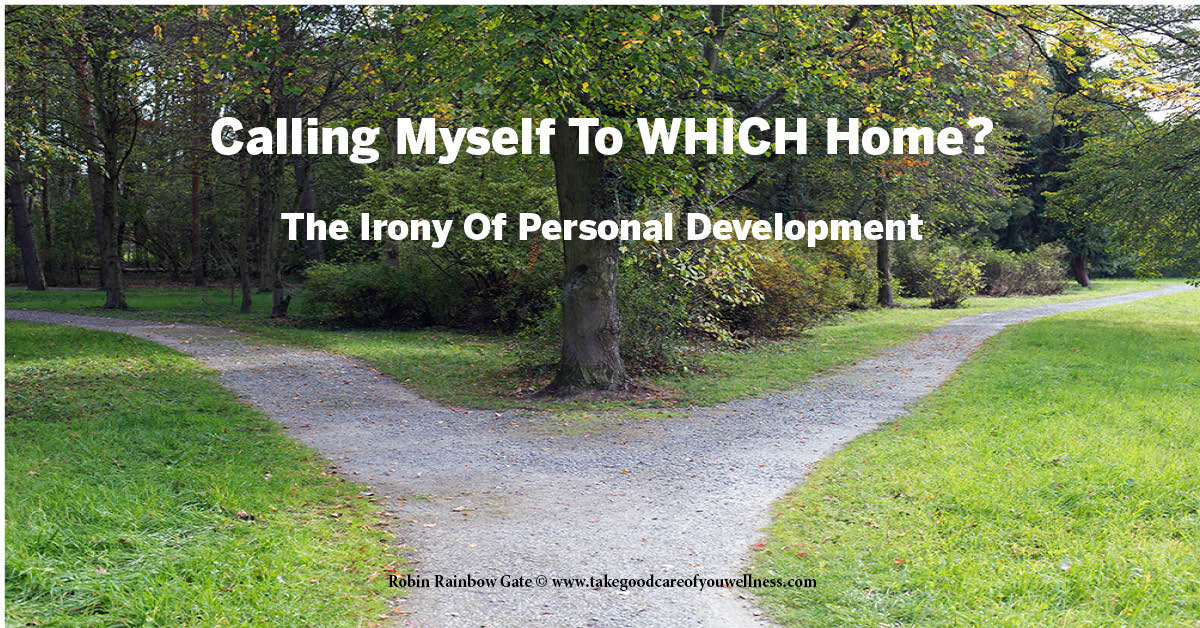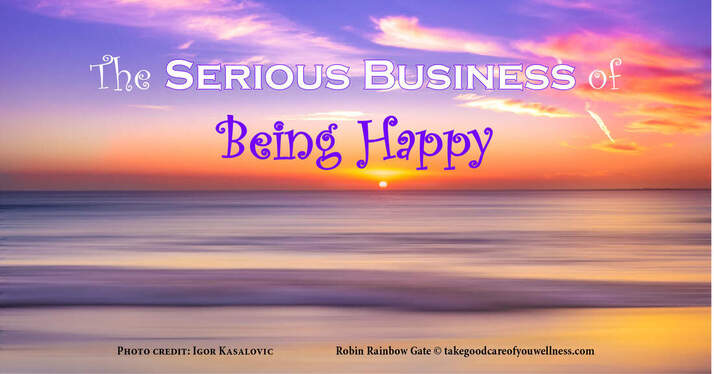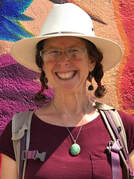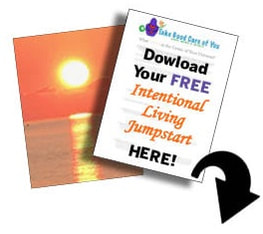When Mothers Forgive Themselves: Tips for Adult Daughters on not getting what You (still!) want11/10/2020 Let's get right to it, shall we?
At this moment, I’m receiving a priceless gift: the forgiveness, acceptance and redemption that came to my foremothers in the full bloom of their sixties is arriving at my doorstep. I see the ancestors, the women of my lineage and soul community walking en masse, bringing message and meaning. Each step heavy with the solidity of woman, of earth, of love. I’m making them some campfire hot chocolate right now, in welcome. While it heats up let me tell you a little story...
2 Comments
As a midlife woman, I am earnestly in the process of learning to be okay with my emotions.
For years I have been hearing that emotions are energies that like the weather, just want to pass through. Through the early Buddhist teachings I received, I was taught that life and the present moment is like a filmstrip (remember those?) I didn't know I'd be experiencing a new level of self-love when the other morning I felt led to walk to a place I treasure but don’t often go to. First, I don't go often because it’s so close and too easy and short a hike. Second, I haven't been going because right now with the rains, the river has been flowing and uncrossable (unless barefoot).
But I felt called, so I went. I found myself walking slower than normal, which means more mindfully – which to me is a good thing. Despite having had months and even years here in Latin America to simply sit and be, and even though I have done a lot of that, I still tend to be in my head, racing along both mentally and physically, thus missing out on experiencing the moment directly and consciously. So, walking slower and seeing more on this morning, was a wonder. The path was clear, the foliage in its full greenness. I felt, as I have almost every time I’ve gone walking out on the mountain trails these past 13 years in Mexico, that I was on a new path, one I had never been on before, although that was far from the truth. Assume nothing and release
Ever since the earthquake in 2017, I don’t pull the keys out my pocket until I’m literally at the door. There’s nothing like emergencies to bring us back home To the present moment To what’s really important To the tenuousness of life Most of all, though, crises make me take nothing for granted. Not taking things for granted naturally implies appreciation for what is: Our lives, our health, our homes, our families and friends. Money, freedom, abilities, support and meaningful lifework if we’re so fortunate. But when I think about not taking things for granted, I mean not assuming or expecting anything to remain the same. Do you ever look in the mirror and say, “What?? When did I start looking like an older woman? Shit!”
It happens to me periodically. More and more. I recognize less and less the person I see reflected. What to do about those new gray hairs? Have you noticed new ones appear suddenly and then seem to fade away, until the next wave? I attach meaning to every influx of silver streaks. I see them as evidence of recent struggle or of triumph. Two sides of the same coin. The Price and the Gift of Time I feel I earn each gray hair. I treasure them as trophies, little gifts and reminders from Time. That yes, life is passing, and while my time on earth is shortening, I am learning and the tradeoff–is so worthwhile.
It’s so easy in the States. It is comfortable, physically. Walls are smooth, carpets offer cushion, water runs endlessly from the faucet.
Yet, this is exactly what troubles me about the luxurious life. Separation from the root source. Why is this important? Hasn’t our whole culture built itself with the idea and goal to hide nature? To surpass her? Impossible of course, as EVERYTHING is nature, and comes from nature. Besides the obvious like trees and birds – how about “My life now, after so much turmoil, was good. On paper it looked virtually perfect. Yes's and No's
When I was growing up, we didn’t talk about feelings in my family. It was as if they didn’t exist – except for happiness and maybe a little sadness. When my mom reached midlife, however, I could tell something was brewing. She seemed more angry and less tolerant–in a good way. Good because these hot emotions weren’t directed toward her daughters, and good because she shared some of them with us. And mostly good because midlife was leading her to set limits, consider her wants and needs at the risk Following your heart. It’s the second invitation in the subtitle of my memoir.
How did “Following Your Heart,” earn its prominent place? What’s so important about following our heart? More important: Why is it so hard to do? What gets in the way? One piece is, as we grow up and move through the ranks of formal education, we are trained I’m a busy bee these days, getting everything ready for the imminent launch of my memoir, Calling Myself Home: Living Simply, Following Your Heart, and What Happens When You Jump, and associated courses and gifts.
This has been a long time in coming, perhaps my whole life, to arrive at this juncture of readiness and knowing. It is time to share with the world what I have learned and gained living in a traditional mountain village in Mexico these past thirteen years. I had decided to take the gems I’ve received through journaling over the last four plus decades, and use them to benefit other seekers of a truly fulfilling life. What sprouted up was an Intentional Living journaling (+ creative projects + community building support calls + much more) course all about Happiness. Not theoretical happiness. Experiential happiness.
Why Happiness? I chose the topic “Happiness” because it seemed a cheerful way to begin the process of delving into who we are and what we need to actually live our ideal life. Why is that so difficult to do, in the first place? Wouldn’t it seem that happiness is so easy and obvious to recognize, follow and live? It wasn’t that way for me. 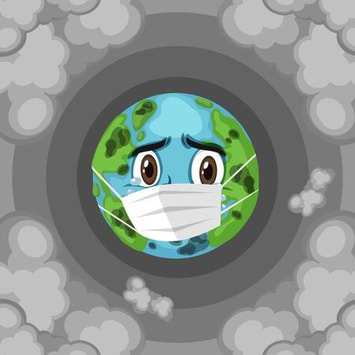 I was filled with grief this morning. It hit me: what kind of times are we living in? I had just come back from town and the market where I “stocked up,” upon recommendation of a friend from my village. I’d run into her in the zócalo and she told me the sobering news that on Monday our tiendas are going to be closed. I have felt quite fortunate to live where I do during this time. If the local stores close, that brings the Coronavirus scare even closer to home than it already is. I returned home and sprayed my keys, coins, backpack and shopping bag with the lavender disinfectant I’d made. Next order of business: I took off the clothes that had perhaps touched someone on the combi or brushed against a shopper or vender in the market – and hung them on the line in the sun. Then I set to disinfecting the produce I’d purchased. This time, not just to kill any bacteria from water the fruits and vegetable might have been sprayed with. At the top of my mind was that surely the venders had touched the fruit or greens and who knows if they might have it? In batches, I let the produce soak in the tub I use for that. Fortunately, the mountain spring water that comes via garden hose was trickling sufficiently today to at least disinfect my food. Washing clothes would have to wait. 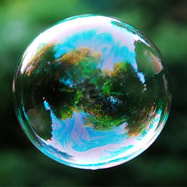 I was struggling with how I wanted to take and handle the news of the Coronavirus. Normally I distance myself from political news and health scares, not giving either much relevance in my life. Choosing to live on the edge of a village in the mountains in south central Mexico is not only a calling and a joy, it is also a fitting metaphor. I live on the edge, on purpose. I stopped watching the news during the first George Bush presidency. Just two seconds of his voice, appearance and vibe and I could feel myself crumbling into a heap of despair, depression and hopelessness. I’m that sensitive. I remember deciding in that moment, “Well, I guess I won’t be watching the news for the next four years.” The determination was effortless to implement and has remained so. Many may see me as irresponsible and denying “reality”, but first, I get the gist of what’s happening. The details aren’t important and it’s not new, it’s been going on for ages. I get it and know enough of myself and my values to distance myself from it for self-preservation. Second, we all have different strengths, gifts and ways to share them for the betterment of the world. Mine is by maintaining myself in the purest, highest vibration possible so that I may radiate that to the world and hopefully be of service by what I model. I normally am unaffected by world events. Even Trump, I choose to ignore and in that way continue on my path and life without that distraction and upset. So when I became “infected” with fear of the Coronavirus, I didn’t know what to do. I’m accustomed to distrusting the media. If I were to isolate myself socially, wouldn’t than mean I had fallen prey to the fear virus? One thing I fear is being a fool. I didn’t want to be one at the end of this world drama. But, I did feel afraid, and so struggled between these different parts of me, not trusting either and not knowing what to do. When I was little I remember hearing my mom share that the rationale she learned from her mother about changing her underwear daily was to avoid the horror of being in an accident and the hospital or ambulance people seeing that you had dirty underwear. That was my grandma: behaviors were taught, motivated and performed based on what others would think.
Despite my rebelliousness about doing things because of what others would think, I’m a bit embarrassed to admit that some mornings I look at yesterday’s underwear, cock my head and consider, “Could I wear these again today?” I feel I have a little more permission to do this knowing my older sisters used to reuse hers Inside-out when she was in college and responsible for doing her own laundry for the first time. I do my own laundry by hand outside where the mountain spring water arrives via garden hose. But sometimes it doesn’t come, or the weather is too wet and the pile accumulates. It is on those rare occasions that I might (grimace) turn a pair inside out and use them, praying I don’t get in an accident so everyone would see the seams on the outside and know. Though here in my mountain village in Mexico I don’t think people would judge or even notice that! Today while walking I used vision as a present moment practice. The morning was crystalline with colors bright and clean after last night’s rain.
I allowed myself to and inclined towards seeing what was before me. Several times I stopped and simply looked all around. The swirling high clouds in the rich blue sky. The deep natural carvings in the mountains. The reddish earthen path. New houses being built. A white dog with short bristly fur and a brown patch mark over one eye who came to greet me. As I turned onto the path that would return me to the main road I felt myself moved and opening with appreciation for the beauty and goodness of my environment, my life: having the time and flexibility to take a morning walk, the strength and coordination to walk where and how I please, pain-free, the mildly cool breeze caressing my arms and nourishing me, nice clothes and good shoes. I love wearing white. When I lived in the States and had an executive-type job I often wore white. The conflict is that I’m like Pigpen – I attract dirt, so all my white shirts soon had embarrassing stains on them: spots of turmeric or hot sauce that I couldn’t scrub out. Fortunately, there were plenty of good second hand clothes stores where I lived, so I treated myself at that time to a hearty selection of two dollar white tops.
Then I moved to a mountain village in Mexico where I’m soon to complete twelve years. Yesterday I was trying to recall what it was I knew and envisioned when I decided it was the place where I could and would to live in accordance with my values. The first image that came to mind were the clothes drying on the flat roofs of the houses I viewed from the roof of the house where I was staying. I also vaguely remembered some ideas about living slower with less technology. But clothes drying on the line was concrete: Here I could wash my clothes by hand and hang them outside to dry. “But,” I argued with myself, “I could have created a life in which I hand-washed my clothes in the States as well. What is special about doing it here?” Somehow being part of a place where this is how life is normally lived (versus an anomoly) is important to me. It gives me a sense of belonging; that although a foreigner and stranger to this place and culture, I fit here. We fit together I still love washing my clothes by hand and hanging them on the line. It remains a part of my lifestyle, a value, and a pleasure. But here’s the irony: I’m not very good at it. And even though I’m resigned to the belief that I’m not good (tidy) enough for white and so rarely dress in it, avoidance has not made me immune to accruing stains when I do wear it. Yesterday, sitting amongst an intimate group of women in their thirties, one of my students asked me, “Does life keep getting better?” I closed my eyes and paused, searching within for my true experience. The women groaned, interpreting my silence as, “Uh oh, bad news.” I explained to them that the question is a profound one, and that I needed time to locate my response.
After my students left and over the next several hours, I found myself continually returning to the question. First, it was interesting to me that already their experience was one of improvement every year of their lives. Did I view my life that way? A good starting question for me was, “Define better.” I have spent my adolescent and adult life in search of understanding and experiences that are healing and transformative. “What would need to have happened or be happening in order for me to feel my life is getting better with time and these efforts?” I asked myself. I’d need to feel an overall lightening, more joy, ease, sense of freedom. Gladness to be here on the earth in my body with my personality and essence. Does anybody else’s life seem as ironic as I perceive mine?
A workshop is offered for female empowerment at a great price and at a place I love. There is nothing I want more now than to be the empowered Me. I’ve been sick for two weeks. I can see all the reasons why I “should” go. And when I imagine it, I feel tired and that it will be a drain on my energy. Do I choose to push and do what I think I “should” again? Draining my life force energy even more and once again? It is the way I’ve always done things. Push and try to be “good” and “right”. My credence has been: Have no limits. Or I could say “No,” and stay home and recuperate and be gentle with myself, maybe a small quiet walk with a friend. That feels like a relief. The irony for me is that I have an idea of what I “should” do to become Empowered Me. And maybe it isn’t really so. Maybe the empowered me says, “No thank you,” and trusts myself and my body and what feels gentler and kinder, “even though”. Maybe this idea of doing what I should, this doing at all, is part of that patriarchal value inside of me around doing-equals-success. What if the empowered thing is to listen to myself, stay home recuperating and nourishing myself. No matter what anyone else thinks or says. That is the empowerment I do want. I recently was asked this question and as a person who left a great career after the sixty hour weeks affected my health, it touched home. While I've been living a consciously simple life for twelve years and enjoy the time and freedom to engage in activities that I want to do, which nourish me and which I feel passionate about, I still have a propensity to workaholism. That said, with my sombrero and Wellness Coach hats on, here are my suggestions:
1. Create a schedule that includes everything that is important to you - rest and sleep, eating well, exercise, relaxation/spiritual practices, fun, socializing, as well as the tasks you are obligated to. Count the “non-work” items as as important as the others and take the fact that they’re on your list seriously. Depending on you, what works for you, what you need at this time, the schedule can be loose or tight or somewhere in between. For instance, there may be certain tasks that must be done at specific times: picking someone up, a meeting, taking medications or eating at specific times. Everything else can be fit in between those. Somedays there may be no time-related tasks. On these days, if you feel you can trust yourself to not just do the obligatory tasks or only do the self-care tasks, then you can flow. If you choose a flow day, look at the schedule at the start of and throughout the day to keep in mind what you’ve committed to for that day and check them off as you do them. If flowing is too unstructured for you then you can also schedule everything in. Be literal and keep track of your time. Allow for 15 minutes leeway for unexpected occurrences. Check items off the list as you do them no matter how you choose to structure your day. I suggest making the list for the next day the night before and really looking at what will be When I started living simply, in according to my values, I was shocked to discover there was a movement in the states called Voluntary Simplicity that dealt with the same issues.
I formed a Voluntary Simplicity support group in the city where I lived which lasted over eight years. Now it is twenty-five years later and “Minimalism” has replaced Voluntary Simplicity. I am not a Minimalist in that I don’t aim to have nothing. The principle we offered and shared in our support group was more about following your heart, discovering who you really are, what you really want and are passionate about - and then have the “things” you need, if any, to support that. There is no judgement about what that passion is. It could be sailing around the world - in which case a large, good quality, safe boat would be idea. That is appropriate, not a bad thing! 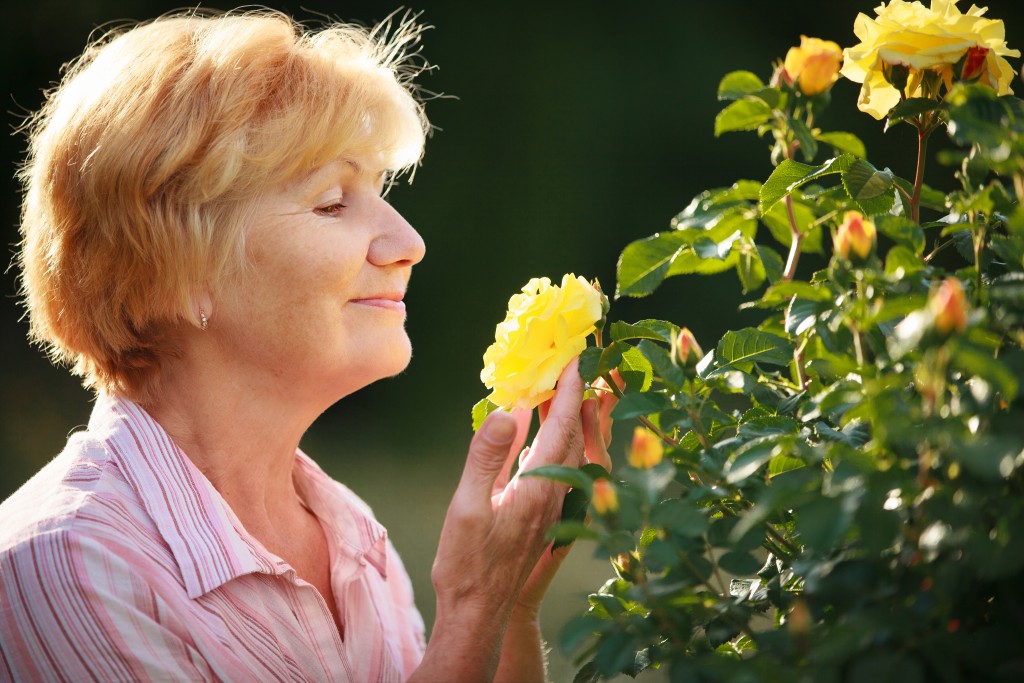 Photo Credit: Gromovataya Photo Credit: Gromovataya It can be frustrating being around people who mirror issues we have and don't like about ourselves, let alone to admit! Just like with all addictions - as dealt with in the 12 step programs - each person has to hit their own bottom and realize it. Only then can and will they choose to make changes that better serve them and those around them. For people in this situation I suggest that they keep doing and developing, making time for, the things that represent “stopping and smelling the roses” for them. You can do these things alone, with others, and even invite the person your thinking about in your question. The key and challenge of course, is fully owning just for yourself those activities and the joy and nourishment they bring you. That means, without attachment, need, manipulation to try to “make” (the same as “get” - both of which indicate force or control over) the other do the same for themselves. Not easy, I know, but the only answer I feel is healthy and truly productive. By being yourself fully, which includes “smelling the roses,” you are living in a good way for you, with just that motivation. Paradoxically, you are then being a model for others to do the same. This was demonstrated to me years ago. How does a minimalist lifestyle contribute to our society from an environmental standpoint?7/5/2018 I was recently asked this question which is a great one, in itself exhibiting awareness. To me, the environmental aspect of a minimalist lifestyle is in a way the most important and is at the heart of the theme. Here's why:
For me and many others who experience discontent with the standard prescribed lifestyle in the States, it is an observation or felt sense that the way of living - especially with so much technology - is out of kilter with a harmonious, respectful relationship with the living world. The development and rise of technology in the West came from a very mental perspective that sought to control nature and the masses. The craving of the mind to understand, know and in that sense have dominion over life is a strong one. Scientific thinking from the Industrial Age, promises a reality that is fixed. This makes life less scary and uncertain and offers the idea that all that we seemingly can’t control in life could be conquered. Man over “God”. I have increasingly been receiving questions about living simply lately. When I changed my lifestyle over twenty years ago I was surprised to discover an actual movement based on the ideas and sensibilities I held, called Voluntary Simplicity. Now, Minimalism has taken hold as the trendy term.
I have some issues around the term, as it seems to hit some people as a a lifestyle change requiring unwanted discomfort, poverty, giving up of "stuff" overall perceived as a sacrifice. All of which has negative connotations and seems to be received sometimes as the hammer of justice telling people what they "should" and "must" do. Ouch. A local woman who has a restaurant came to my authentic Indian cooking class today. When the students went around the circle taking turns introducing themselves and speaking about what the attraction was that brought them to the class, her story surprised me. She shared that she disliked Indian food. She had a particular isue with the spice cumin, that she said made her feel ill. Smelling it was not a problem, but when it was used in dishes she found it overpowering and literally sickening. Another student suggested perhaps she has an allergy to the spice. When she would be visiting her daughter in San Fransisco and they would go to and Indian restaurant, she would bring her own food.
We continued talking about cumin for awhile, two participants shared that they love cumin, and one woman shared that in traditional Mexican cuisine, cumin is used often in the north, but not in the south. I agreed with Laura that cumin can be overpowering and told her, “Well, most of today’s recipes happen to feature cumin, and in fact I had planned to give you all a lesson in cumin! Are you open to having any cumin in the food or do we need to make two batches of the dishes?” She said that a little cumin would be all right and the other students agreed to this adjustment. Last night I had a dinner that felt good to my body and that I felt proud of.
It took days and lots of preparation to have this simple, wholesome meal. Last week, I made a new batch of fermented vegetables, which took about three days to ferment to the point of having a tasty, tangy bite due to the freshly squeezed lemon juice, grated garlic and ginger I added. Six days ago, I started soaking my quinoa for fermented quinoa, to which I added some of the brine from the fermented vegetables. |
Robin Rainbow GateI help people midlife and beyond to find their inner power, health and well being through slow, conscious living Ready to live Your True Life? |
|
|
Sign up here for
|
 Take Good Care of You Wellness Website and Contents by Robin Rainbow Gate is licensed under a Creative Commons Attribution-NoDerivatives 4.0 International License. |

